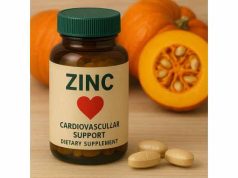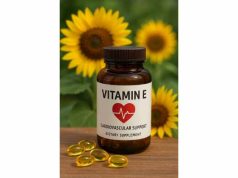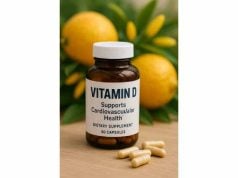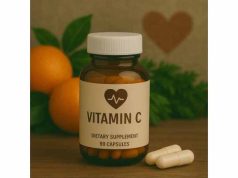
Cinnamon has captured widespread attention not only for its unmistakable aroma and flavor but also for its potential to support heart health and diminish cardiovascular risk factors. Derived from the inner bark of specific tree species, cinnamon has long been celebrated in traditional medicine for its anti-inflammatory and antioxidant properties. Modern research builds upon this legacy by suggesting that cinnamon for cardiovascular health may help maintain balanced cholesterol levels, promote healthy blood pressure, and reduce oxidative stress. If you’re curious about cinnamon’s heart-related advantages or want to incorporate this spice into your health routine, keep reading to discover its myriad benefits and how to use it effectively.
Table of Contents
- Origins, Composition, and Key Features
- Physiological Pathways: How Cinnamon Works
- Clinical Observations on Cardiovascular Health
- Proper Dosages, Administration, and Precautions
- Frequently Asked Questions: Your Queries Answered
- References and Sources
Origins, Composition, and Key Features
For centuries, cinnamon has held a place of honor in culinary and medicinal traditions worldwide. Known for its delightful fragrance and warm, sweet taste, this spice comes from the inner bark of several tree species within the genus Cinnamomum. Two primary varieties dominate the market:
- Ceylon Cinnamon (Cinnamomum verum): Often referred to as “true cinnamon,” it hails mainly from Sri Lanka (formerly Ceylon). This variety generally has a lighter color, a subtler flavor, and a mildly sweet note.
- Cassia Cinnamon (Cinnamomum cassia): Also known as Chinese cinnamon, cassia is bolder, darker, and more common. It contains higher amounts of coumarin, a natural compound with potential blood-thinning effects.
Historical Background
Tracing back thousands of years, cinnamon has traversed cultural boundaries. Ancient Egyptians utilized it in embalming mixtures, while medieval European physicians recommended it for respiratory issues and various infections. The spice was historically a symbol of luxury and power, motivating explorers and merchants to risk perilous sea routes to secure stable supplies.
Key Phytochemical Compounds
Cinnamon’s potential for heart health can be attributed to its unique chemical profile:
- Cinnamaldehyde: Responsible for cinnamon’s characteristic aroma and much of its antioxidant and anti-inflammatory capabilities.
- Eugenol: Known for contributing to certain spicy notes and displaying antimicrobial properties.
- Coumarin: Cassia varieties contain higher levels of this substance, which, in large amounts, may raise concerns about liver toxicity.
- Polyphenols: Boasting robust antioxidant activity, polyphenols in cinnamon may assist in counteracting oxidative stress and bolstering cardiovascular function.
Geographic Sources
Today, cinnamon is cultivated in a variety of tropical regions, each imparting subtle variations to its flavor and composition. Top exporters include:
- Sri Lanka (primarily Ceylon)
- Indonesia (predominantly cassia)
- China, Vietnam, and Myanmar (cassia species)
Every region’s distinct soil, climate, and farming techniques create nuanced differences in aroma, taste, and chemical makeup.
Culinary and Traditional Medical Uses
While some appreciate cinnamon primarily as a warming additive for baked goods, cereals, and teas, holistic systems such as Ayurveda incorporate cinnamon for perceived benefits like:
- Better Digestion: It may help alleviate gas and bloating.
- Improved Circulation: Some herbalists recommend it to promote blood flow.
- Natural Preservative: With antimicrobial properties, cinnamon can help prolong the shelf life of certain foods.
Interplay with Other Spices
Cinnamon frequently appears alongside other healing spices such as ginger, turmeric, and cardamom. The synergy between these spices’ active ingredients may enhance antioxidant effects, further amplifying their potential for safeguarding the cardiovascular system.
Cinnamon as a Supplement
Beyond the simple culinary use, cinnamon extract and capsules are commonly available for those targeting specific health benefits—particularly for managing blood sugar levels and fostering heart health. Manufacturers may concentrate certain compounds, making these supplements different in potency from ordinary ground cinnamon.
Overall, cinnamon’s enduring popularity comes not just from its comforting flavor profile but also from emerging data pointing to its cardiovascular advantages. Whether used as a fragrant food addition or part of a structured supplement regimen, this well-loved spice offers a range of benefits worth exploring.
Physiological Pathways: How Cinnamon Works
Although cinnamon is easily recognized by its signature smell and taste, its internal mechanisms related to cardiovascular support involve complex biochemical processes. Researchers studying cinnamon for heart health often focus on how it influences glucose metabolism, lipid regulation, and oxidative stress—a triad deeply connected to healthy heart function.
Promoting Balanced Blood Sugar
One of cinnamon’s most touted benefits is its ability to stabilize glucose levels. Multiple studies suggest that compounds found in cinnamon can:
- Enhance Insulin Sensitivity: Cinnamon might boost insulin action, helping cells absorb glucose more efficiently. Insulin resistance is a major contributor to cardiovascular disease, so any improvement in insulin sensitivity can indirectly support heart health.
- Slow Carbohydrate Breakdown: Certain polyphenols in cinnamon appear to inhibit digestive enzymes responsible for metabolizing carbohydrates into simple sugars. This phenomenon may prevent dramatic spikes in blood sugar, reducing stress on the cardiovascular system over time.
Since elevated blood sugar can lead to chronic inflammation and arterial damage, these glucose-regulating effects underscore how cinnamon helps cardiovascular function indirectly by lowering metabolic risks.
Reducing Inflammatory Pathways
Persistent low-grade inflammation is a recognized precursor to plaque buildup in blood vessels, which can lead to coronary artery disease and other cardiac issues. Preliminary studies indicate cinnamon’s active ingredients may:
- Modulate Cytokines: Cytokines like TNF-α or interleukin-6 are inflammatory molecules. Cinnamon extract may slow their production or release.
- Combat Oxidative Stress: Free radicals generated in the body can damage cells and accelerate atherosclerosis. Antioxidants in cinnamon, including various flavonoids, can neutralize these harmful molecules.
By dialing down inflammatory reactions, cinnamon potentially reduces vascular strain, making it a valuable ally for people looking to protect their arteries and heart function.
Facilitating Healthy Lipid Profiles
Several lines of research link cinnamon supplementation with improvements in lipid metabolism. Specifically, cinnamon may aid in:
- Lowering LDL Cholesterol: High LDL (often termed “bad” cholesterol) can accumulate in arterial walls. Some human trials have found slight but meaningful reductions in LDL levels among participants consuming cinnamon.
- Managing Triglyceride Levels: Triglycerides are another form of fat in the bloodstream. Elevated levels, particularly in conjunction with low HDL cholesterol, raise the risk of heart complications.
- Raising HDL Cholesterol: HDL (the “good” cholesterol) helps shuttle fatty deposits out of arteries. Although results are mixed, some studies suggest cinnamon can support an increase in HDL levels, assisting in long-term cardiac protection.
While the magnitude of these lipid improvements can differ based on the dose, duration, and specific cinnamon species, they collectively point toward a beneficial effect that complements balanced diets and exercise routines.
Combating Microbial Imbalance
Many people overlook the role of infection or microbial imbalance in systemic inflammation. Chronic bacterial or fungal infections can elevate inflammatory markers and indirectly strain the heart. Cinnamon’s antimicrobial effects target a wide spectrum of microbes, potentially easing systemic load and fostering better overall health. By reducing microbial burdens, the body can allocate more resources to maintaining robust cardiovascular function.
Regulating Blood Pressure
Although cinnamon is not a direct antihypertensive, preliminary evidence suggests it could subtly influence blood pressure:
- Vasodilation: Certain cinnamon extracts may encourage the relaxation of blood vessel walls, promoting improved blood flow.
- Stress Reduction: Elevated cortisol levels due to stress can affect blood pressure. Some studies point to cinnamon’s possible role in tempering stress-related responses, though more robust clinical data is needed.
When taken in conjunction with conventional blood pressure management strategies—like reducing sodium intake, staying physically active, and limiting alcohol—cinnamon may modestly support vascular health.
Influencing Endothelial Function
The endothelium is the delicate inner lining of blood vessels, playing a pivotal role in regulating blood flow and preventing clot formation. In conditions like atherosclerosis, endothelial dysfunction can lead to dangerous plaque development and restricted circulation. Certain components in cinnamon appear to:
- Boost Nitric Oxide (NO): NO is a signaling molecule essential for vascular dilation. By raising NO bioavailability, cinnamon could bolster blood flow and reduce stress on the arterial walls.
- Mitigate Oxidative Endothelial Damage: Antioxidants from cinnamon shield endothelial cells from free radical damage, helping them function optimally and lowering the chance of plaque formation.
Potential Weight Management Support
Excess body weight stresses the cardiovascular system by elevating blood pressure, lipid levels, and insulin resistance. Some small-scale research indicates that cinnamon supplementation might modestly help in weight control, likely through stabilized blood sugar and reduced cravings for sweet foods. While cinnamon isn’t a magic bullet for obesity, using it as a supportive measure in tandem with a sensible diet and regular exercise can yield more substantial overall health outcomes.
Interaction with Other Nutrients
Cinnamon rarely works alone; it can complement other heart-friendly nutrients such as omega-3 fatty acids, magnesium, or soluble fiber. When combined within a comprehensive heart-health strategy, it has the potential to enhance metabolic stability and reduce risk factors, from high LDL cholesterol to elevated triglycerides.
By weaving together these various physiological effects—blood sugar management, inflammation control, beneficial shifts in lipid profiles, and support for endothelial integrity—cinnamon emerges as an intriguing natural aid for cardiovascular well-being. Understanding these pathways is vital for anyone seeking to integrate cinnamon effectively into their daily routine for heart health.
Clinical Observations on Cardiovascular Health
Over the past few decades, scientific interest in cinnamon’s health advantages has grown, leading to various trials and observational studies focusing on the spice’s potential benefits for cardiovascular function. While not all research arrives at the same conclusions, a pattern emerges that points to moderate yet tangible improvements in key heart-related markers, especially when cinnamon is used alongside broader lifestyle changes.
Human Trials and Meta-Analyses
Numerous human clinical studies have evaluated how cinnamon supplementation affects parameters such as cholesterol, triglycerides, and blood glucose levels:
- Lipid Panel Improvements: In some randomized controlled trials, individuals consuming cinnamon (particularly Ceylon) saw meaningful decreases in total cholesterol and LDL. While changes to HDL were less consistent, any improvement in LDL is typically seen as favorable for preventing arterial plaque buildup.
- Reduced Fasting Blood Glucose: People with type 2 diabetes or insulin resistance sometimes reported lower fasting glucose levels after consistent cinnamon intake. This drop is a vital step in mitigating chronic complications that damage blood vessels over time.
- HbA1c Changes: HbA1c is a long-term marker of blood sugar management, capturing average levels over about three months. Some but not all studies noted improvements in HbA1c following cinnamon supplementation, suggesting that the spice may be an asset for maintaining stable glucose control.
Although the degree of change varies from study to study—often influenced by factors like dosage, cinnamon type, and participant baseline health status—the collective data supports the idea that cinnamon confers a small to moderate positive effect on cardiovascular indicators.
Observational Insights and Epidemiological Data
While randomized trials offer controlled conditions, large-scale observational studies provide real-world context. In certain populations with higher cinnamon consumption—either in daily cuisine or as a traditional remedy—researchers have observed trends such as reduced incidence of metabolic syndrome components. These findings, though not always definitive proof of causation, further bolster the spice’s reputation for promoting heart health.
Mechanistic Studies in Laboratory Settings
Beyond human trials, laboratory-based research on animals and cell cultures offers windows into how cinnamon’s constituents operate at a molecular level:
- Anti-Atherogenic Properties: Animal studies often highlight decreased fatty streak formation in arteries when cinnamon extracts are administered, suggesting an anti-atherosclerotic effect.
- Inflammatory Marker Modulation: Research shows a dampening of inflammatory cytokines in cell cultures treated with cinnamon compounds, supporting the spice’s role in lowering vessel inflammation.
- Antioxidant Capacity: Lab analyses consistently reveal that cinnamon extracts exhibit robust free radical scavenging, an activity tied to protecting cells and tissues against oxidative damage.
These mechanistic findings help explain the improvements in metabolic and cardiovascular markers observed in human subjects, underscoring that cinnamon is more than just a flavor enhancer.
Comparing Ceylon and Cassia Varieties
While many studies fail to distinguish between Ceylon and cassia, a trend emerges that Ceylon cinnamon usually contains lower coumarin levels. High coumarin consumption poses possible risks, particularly for those with liver issues or using blood-thinning medications. Some research indicates:
- Cassia’s Potency: In certain trials, cassia displayed slightly stronger effects on blood sugar regulation, perhaps due to higher levels of specific active compounds, including coumarin derivatives.
- Long-Term Ceylon Use: Over extended periods, Ceylon may be safer, especially for people worried about coumarin-related toxicity. In terms of heart-related benefits, both types can be beneficial, but the choice may hinge on individual tolerance and safety considerations.
Role in Metabolic Syndrome Management
Individuals with metabolic syndrome face a combination of risk factors—elevated blood sugar, high triglycerides, low HDL, and increased abdominal fat—that significantly raise their odds of experiencing cardiovascular events. Studies investigating cinnamon in such populations frequently report:
- Improved Glycemic Control: By supporting insulin sensitivity, cinnamon can be a natural adjunct for those working to lower both their fasting and post-meal glucose levels.
- Better Blood Lipid Ratios: In conjunction with a balanced diet and regular exercise, cinnamon may help shift the LDL:HDL ratio in a heart-friendly direction.
- Reduced Inflammatory Load: Many metabolic syndrome sufferers exhibit chronic inflammation, making cinnamon’s anti-inflammatory properties especially valuable.
Limitations and Considerations
It’s essential to acknowledge certain constraints within the existing research:
- Short Study Durations: Many clinical trials run for 8–12 weeks, which might not capture the full scope of long-term effects.
- Variability in Dosage: Different studies use daily doses ranging from half a teaspoon to several grams of cinnamon powder or extract, complicating direct comparisons.
- Lifestyle Context: Cinnamon’s effectiveness is usually measured against a backdrop of diet, exercise, and other health behaviors. Isolating the spice’s standalone impact can be challenging.
In summary, while no single supplement can replace foundational health habits, cinnamon’s supportive role in cardiometabolic health is supported by a growing body of evidence. The synergy between glucose regulation, anti-inflammatory potential, and possible cholesterol-lowering properties makes cinnamon an attractive natural option for those looking to fortify their heart health routine.
Proper Dosages, Administration, and Precautions
Just like any supplement or medicinal herb, cinnamon carries specific usage guidelines to optimize benefits and limit potential drawbacks. The best approach often merges moderation, safe sourcing, and an understanding of your overall health picture—particularly if you have existing conditions or take medications.
Typical Dosage Ranges
Clinical studies focusing on cinnamon and heart health commonly use dosages between 1 and 6 grams of cinnamon powder or its equivalent extract per day. In teaspoons, 1 gram of ground cinnamon is roughly half a teaspoon, but this can vary based on cinnamon’s grind and density. For a majority of consumers:
- Low-End Usage: 1–2 grams (around half to one teaspoon) per day might be sufficient for modest metabolic support.
- Higher-End Usage: 3–6 grams daily has been explored in certain clinical contexts, especially for individuals with type 2 diabetes or high LDL cholesterol.
Supplements often specify the content of cinnamon extracts, allowing for a more precise intake. The recommended dose usually falls in the 250–500 mg range of standardized extract taken once or twice daily. Always consult a healthcare provider to tailor a dosage appropriate for personal needs and medical history.
Ceylon vs. Cassia: Choosing Wisely
When looking to use cinnamon therapeutically—particularly at higher doses—Ceylon cinnamon (Cinnamomum verum) is often considered safer due to its lower coumarin content. Excessive coumarin may stress the liver or interact with certain medications. If you cannot ascertain your cinnamon source, be mindful of daily intake to avoid coumarin buildup.
Methods of Consumption
Cinnamon can be integrated into your daily routine through various methods:
- Culinary Applications: Stir ground cinnamon into oatmeal, smoothies, yogurt, or coffee. Use it in savory dishes like curries for a warm flavor boost.
- Supplement Capsules: Standardized extracts remove variability in potency. This option simplifies dosing and ensures consistent intake of active compounds.
- Tinctures or Liquid Extracts: These concentrated forms, often combined with other herbs, can be added to water or juice for easy consumption.
- Cinnamon Tea: Steeping cinnamon sticks in hot water not only extracts flavor but also releases beneficial compounds. This gentle approach may be suitable for mild, daily use.
Optimal Timing
Research does not definitively prescribe a specific time of day to take cinnamon for cardiovascular function. Many prefer to split the dose between breakfast and lunch or take it alongside meals to help moderate post-meal glucose levels. However, the key is consistency—steady intake over weeks or months typically yields the best outcomes.
Potential Side Effects and Allergies
In moderate amounts—like those found in common culinary uses—cinnamon is widely regarded as safe. However, potential side effects or concerns include:
- Gastrointestinal Issues: Large doses can lead to stomach discomfort or even diarrhea in sensitive individuals.
- Allergic Reactions: Rare but possible. Watch for symptoms like skin rashes, itching, or breathing difficulties.
- Liver Impact: High coumarin content in cassia cinnamon may pose risks for those with compromised liver function.
Discontinue use and consult a healthcare professional if you experience any concerning side effects. For long-term supplementation, regular checkups can help ensure no adverse interactions occur, especially if you’re prone to liver issues.
Drug Interactions
Because cinnamon can affect blood glucose, combining it with diabetic medications (like insulin or metformin) might lead to lower-than-expected blood sugar levels. Additionally, coumarin content in certain cinnamon varieties could interact with:
- Blood Thinners: Warfarin or other anticoagulants may be potentiated by coumarin.
- NSAIDs: Some over-the-counter pain relievers can also have mild blood-thinning actions, potentially amplifying coumarin’s effects.
Always inform your pharmacist or physician about any supplements you’re taking to avoid complications. Monitoring your blood work (like liver enzymes and blood clotting profiles) is a prudent strategy for those regularly consuming concentrated cinnamon products.
Population-Specific Considerations
- Pregnant and Nursing Women: Culinary use is generally regarded as safe. Nonetheless, higher supplemental doses lack extensive research in these groups, so it’s best to remain cautious.
- Individuals with Diabetes: Because cinnamon can lower blood sugar, close monitoring of glucose and possibly adjusting medications may be necessary.
- Older Adults: Cinnamon’s anti-inflammatory properties may be appealing for older individuals, but any new supplement routine should be introduced gradually to ensure tolerance.
In essence, using cinnamon responsibly involves selecting high-quality products, maintaining sensible dosages, and working closely with healthcare providers when dealing with preexisting conditions or medications. By following these principles, the likelihood of reaping cinnamon’s cardiovascular benefits without encountering unwanted side effects grows significantly.
Frequently Asked Questions: Your Queries Answered
Does cinnamon actually help cardiovascular function?
Yes. Studies suggest cinnamon’s active compounds can help regulate blood sugar, maintain healthy cholesterol levels, and ease inflammation—factors that indirectly support overall heart performance.
How much cinnamon should I take daily for heart health?
Most clinical studies use 1–6 grams of cinnamon powder (about half to three teaspoons), or 250–500 mg of a standardized extract once or twice daily. Consult a healthcare provider for personalized advice.
Can I use ground cinnamon from the grocery store?
Yes, for moderate cooking or daily use. However, if you’re looking for consistent therapeutic benefits, opt for Ceylon cinnamon or standardized supplements to reduce coumarin exposure.
Is cinnamon safe for people on diabetic medications?
Cinnamon can lower blood sugar, so it may intensify the effects of diabetic drugs. Consult your doctor before combining cinnamon supplements with prescribed medications to avoid hypoglycemia.
Are there any side effects of taking cinnamon supplements?
Some individuals might experience gastrointestinal discomfort or allergic reactions. Coumarin in cassia cinnamon can stress the liver, especially at high doses. Discuss with a healthcare professional if you have concerns.
What is coumarin, and why should I be cautious?
Coumarin is a naturally occurring compound found at higher concentrations in cassia cinnamon. In excessive amounts, it can affect liver health and potentially interact with blood-thinning medications.
Can pregnant women safely consume cinnamon supplements?
Culinary amounts of cinnamon are generally considered safe during pregnancy. However, there’s limited research on higher-dose supplementation. It’s recommended to exercise caution and consult an obstetrician.
Does cinnamon help with weight loss?
Cinnamon may help stabilize blood sugar and reduce sugar cravings, potentially aiding healthy weight management. Nonetheless, sustainable weight loss requires a balanced diet and consistent exercise.
Which variety of cinnamon is better for heart health?
Both cassia and Ceylon contain beneficial compounds. Cassia may have stronger effects on blood sugar, but Ceylon typically has lower coumarin levels. Weigh the pros and cons with your healthcare provider.
How long does it take to see results?
Response times vary. Some people notice mild improvements in blood sugar control within weeks, while cholesterol changes may take longer. Regular checkups can track improvements more accurately.
References and Sources
- Anderson, R. A. “Cinnamon, Glucose, and Lipid Metabolism.” Critical Reviews in Food Science and Nutrition, vol. 48, no. 5, 2008, pp. 411–420.
- Ranasinghe, P., et al. “Medicinal Properties of ‘True’ Cinnamon (Cinnamomum zeylanicum): A Systematic Review.” BMC Complementary and Alternative Medicine, vol. 13, 2013, p. 275.
- Qin, B., et al. “Cinnamon Extract Improves Insulin Sensitivity and Alters the Body Composition in an Animal Model of the Metabolic Syndrome.” Journal of the American College of Nutrition, vol. 29, no. 2, 2010, pp. 169–177.
- Verhagen, H., et al. “Cinnamon from the Tree to the Table.” Food & Function, vol. 9, no. 8, 2018, pp. 4113–4126.
- Rao, P. V., et al. “Cinnamon: A Multifaceted Medicinal Plant.” Evidence-Based Complementary and Alternative Medicine, vol. 2014, 2014, Article 642942.
- Chang, C.-W., et al. “Comparative Effects on Liver, Kidney Function, and Coumarin Content in Different Types of Cinnamon.” Molecules, vol. 25, no. 20, 2020, p. 4779.
Disclaimer:
This article is for educational purposes only and does not replace professional medical advice. Consult a qualified healthcare provider before significantly changing your diet or supplement regimen, especially if you have health conditions or take medications.
We invite you to share this article on Facebook, X (formerly Twitter), or any other social platform you prefer. Follow us online to learn more about natural ways to bolster heart health and overall wellness!






